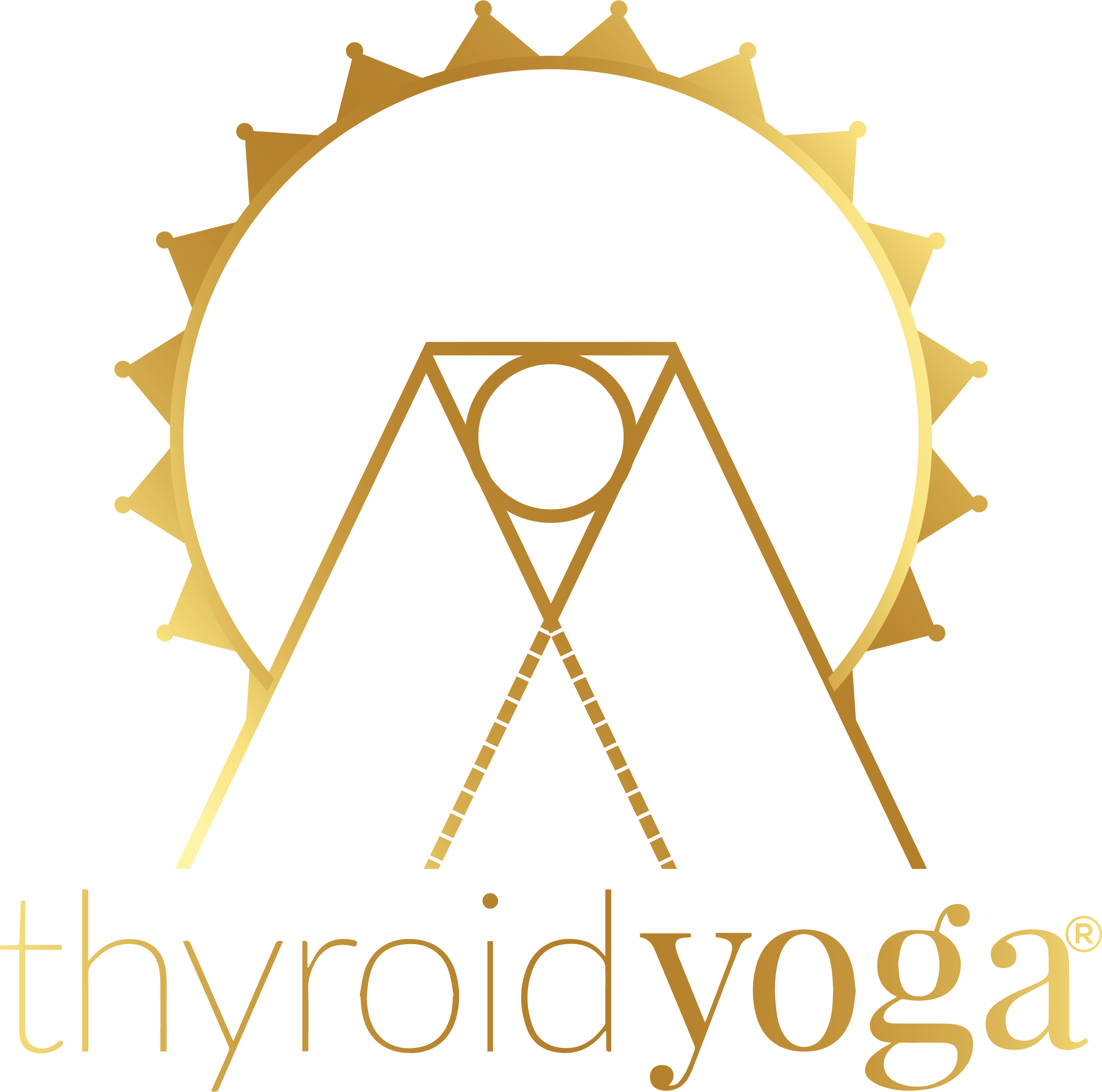What You Need To Know About Running & Your Thyroid
Running and jogging daily can be one of the best forms of exercise for those with certain thyroid conditions and adrenal fatigue. But why?
In addition to improved cardiorespiratory fitness (heart, lungs, blood vessels), consistent running and jogging has been proven to reduce depression and help you to sleep better. Those who run regularly have a lowered risk of colon and breast cancer, lung cancer, and possibly endometrial cancer. Movement stimulates the thyroid gland (located at the base of the neck), sending out hormones that regulate the body's temperature, immune and digestive function, metabolism, heart rate, and blood pressure.
Plus, exercise-induced testosterone can increase an individual's libido and confidence, and endorphins can help reduce tension and anxiety, yielding the effect known as the proverbial "runner's high."
What's more, running exercises almost every part of your body: legs, knees, ankles, arms, hips and butt, abdominals, and shoulders and neck.
A word of caution
If you have a chronic thyroid condition or adrenal fatigue, you may want to take things a notch down at the gym until your symptoms have gone into remission. Light running and jogging, along with gentle and restorative yoga, are great alternatives.
In fact, I noticed that my own Hashimoto's autoimmune symptoms would become extreme when I overdid it at the gym. There was a time when I would take boot camp, spinning, and training classes for hours a day and was gaining weight instead of losing it, and my body wasn't getting more toned. Instead, I was holding on for dear life, holding onto weight just trying to stay nourished while I depleted my energy.
According to expert Chris Kresser, while a consistent, high-intensity workout routine may provide immense benefits for those looking to lose body fat and increase their strength and fitness, there is a fine line between training hard and overtraining—especially for those healing from other concurrent stressors such as autoimmune disease, gut dysbiosis, or adrenal fatigue.
Here’s what you need to know about running and your thyroid
While running long distances and cross-training may be major components of an active lifestyle, engaging in these physically demanding activities too regularly or too intensely can contribute to many different symptoms of overtraining.
Overtraining has been shown to affect blood levels of important neurotransmitters such as glutamine, dopamine, and 5-HTP, which can lead to feelings of depression and chronic fatigue. The stress caused by intense, excessive exercise can negatively affect the hypothalamic-pituitary axis, possibly causing conditions such as hypothyroidism. Hypothyroidism is known to cause depression, weight gain, and digestive dysfunction along with a variety of other symptoms. As we know, high stress in general can cause symptoms of hypothyroidism, and the stress caused by excessive, intense exercise is no exception.
Another major effect that extreme exercise has on our bodies is an immediate increase in cortisol, the hormone that is released when the body is under stress. Heavy-resistance exercises are found to stimulate markedly acute cortisol responses, similar to those responses found in marathon running. Chronically high levels of cortisol can increase your risk for a variety of health issues, such as sleep disturbances, digestive issues, depression, weight gain, and memory impairment. Excess cortisol also encourages fat gain, particularly around the abdomen.
Here are from an expert nutritionist, Dr. Gabrielle Lyon, Director of Nutrition of the Ash Center for Comprehensive Medicine in NYC.
When it comes to scientific data regarding hypothyroidism and exercise more research is warranted, however there are specific actions one can take while going through steps to heal the thyroid. One common experience that patients have is decreased exercise tolerance, they often report that they cannot generate the cardiovascular power they use to.:
Some data suggests that the exercise capacity and endurance is compromised in a hypothyroid state because of impaired blood flow during high oxidative states, changes in energy metabolism, as well as suboptimal cardiac function. Exercises that cause you to train at higher intensities can suppress thyroid function for 24 hours specifically T3.
There is a decrease of T3 availability in the body at higher intensities (>70 % intensity) of training, for example sprint intervals.
Thyroid hormones also influence tendon homeostasis. What this means is that low levels of thyroid affect the cells that make tendons strong as well as enhance collagen production. When the thyroid is impaired, individuals are at risk for tendon injuries, keep explosive movements and exercises that require high skill movements to a minimum.
If you have an underactive thyroid it is important during recovery to keep training modalities to under 70% of max heart rate. In addition, consider planning your meals around training as fasting further suppresses thyroid hormones.
Eating every 4 hours helps keep cortisol levels low by protecting the body from perceived starvation.
One way to keep excess cortisol levels down is to eat every four hours to protect the body from perceived starvation.
Wondering what to eat? You can follow along with my nutrition recommendations in the You Nourish You Recipe Book of Thyroid Yoga-Approved Recipes, featuring breakfast, lunch, dinner, dessert, and protein smoothies from nutrition experts including Dana James, Nikki Sharp, Kristin Dahl, and Parsley Health Founder Robin Berzin M.D.
The bottom line.
Running and jogging are great cardiovascular activities, and just because you have a thyroid condition doesn't mean you have to stop doing what you love. Listen to your body; it will tell you what you need. Be sure you are eating nutrient-rich, whole-food diets with healthy fats and proteins, and rest in between workouts. Yoga and pranayama (breath work) are excellent complements to running.
Learn more about holistic self-care rituals and targeted yoga poses that will change the way you feel every day in my Thyroid Yoga course. Hint: It's much more than yoga—we dive deep into the root cause of why you've been feeling unbalanced and help you to intuitively find harmony and freedom in your body again.

